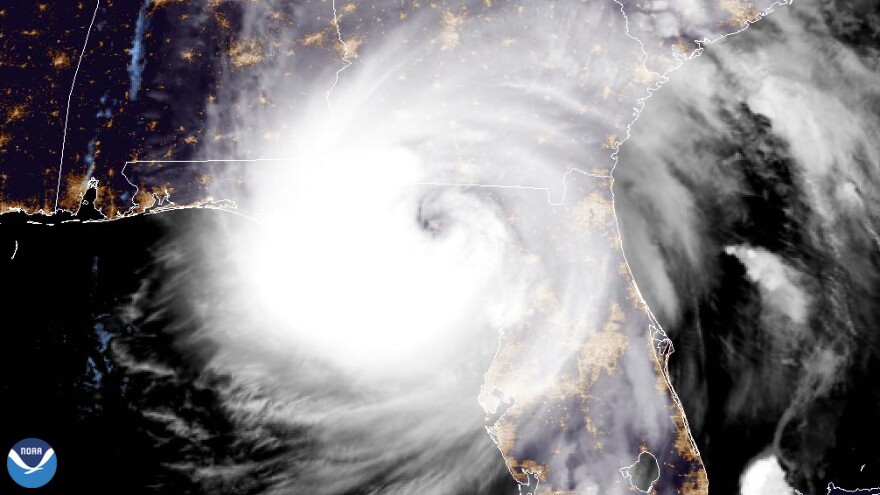
Florida Public Radio Emergency Network (FPREN) Storm Center | By Leslie Hudson
It’s spooky season! Halloween is synonymous with trick or treating, haunted houses and horror movies. But nearly 1 in 10 people have a fear of weather, including phobias of the weather. According to a study published in the Bulletin of the American Meteorological Society, storm phobias occur in 2%–3% of the general population.
The American Psychiatric Association says phobia is a “marked fear or anxiety about a specific object or situation.” A Gallup poll found that 85% of respondents said they had some degree of fear about severe weather and 40% said they had a moderate degree of fear.
It’s no surprise that thunderstorms and tornadoes are among the most feared weather events. An unhealthy fear of tornadoes or hurricanes is called lilapsophobia.
The AMS study also showed that more than 40% of people had a fear of tornadoes and tropical storms. People who suffer from this phobia can live their lives like they are constantly under threat.
From fog to flooding, here are 13 of the most common weather phobias:
- Anablephobia: Fear of looking at the sky
- Nephobphobia: Fear of rain or clouds
- Astraphobia: Fear of thunder and lightning
- Chionophobia: Fear of snow
- Heliophobia: Fear of the sun
- Iridophobia: Feat of rainbows
- Ancraophobia: Fear of wind
- Homichlophobia: Fear of fog
- Thermophobia: Fear of heat
- Cryophobia: Fear of cold weather
- Antlophobia: Fear of flooding
- Kalimeraphobia: Fear of climate change
- Ombrophobia – an irrational fear of rain
Experts say exposure therapy may help some people gradually become more comfortable around whatever weather causes fear. For example, you might listen to recordings of thunder or look at pictures of thunderstorms. Eventually, practice could help people stay calm during a real-life storm.
Experts also say most people are resilient and over time, most people can bounce back from weather-related trauma. People who suffer from these disorders can experience panic, rapid heartbeat, shortness of breath, trembling and a strong desire to get away according to MentalHeatlh.gov.




Leave a Reply










